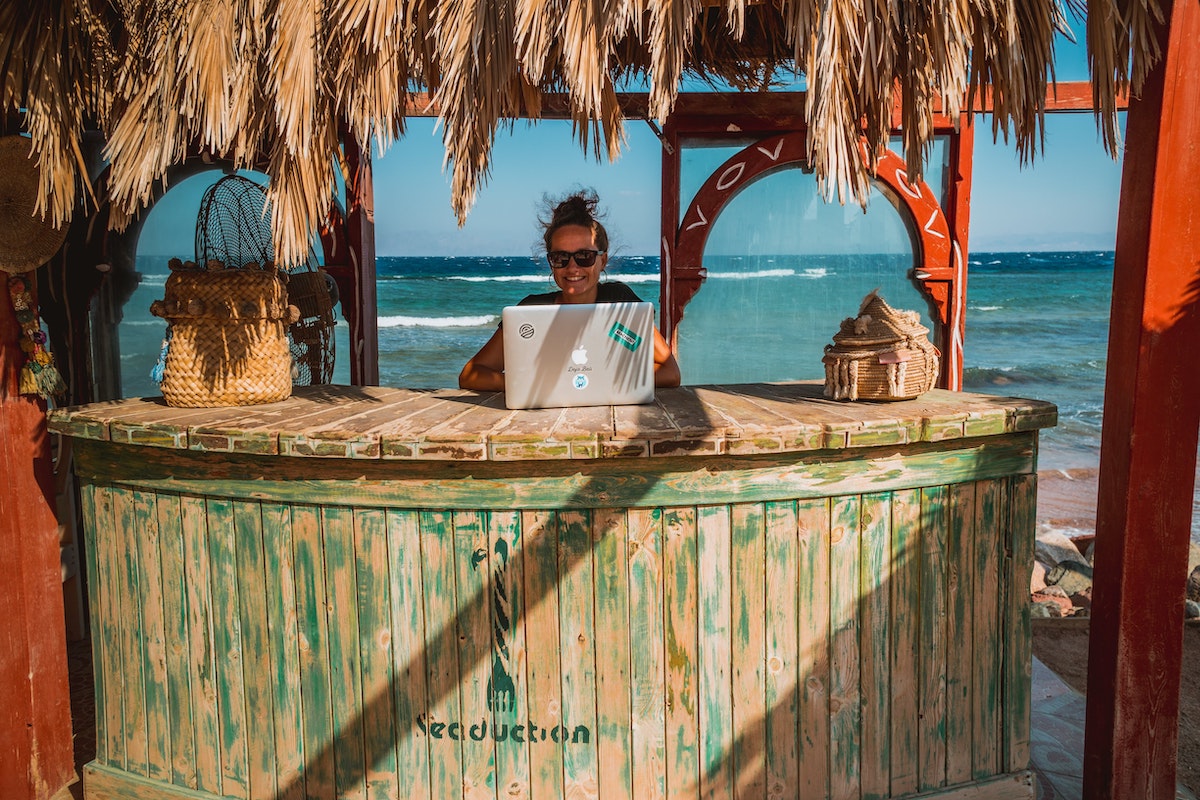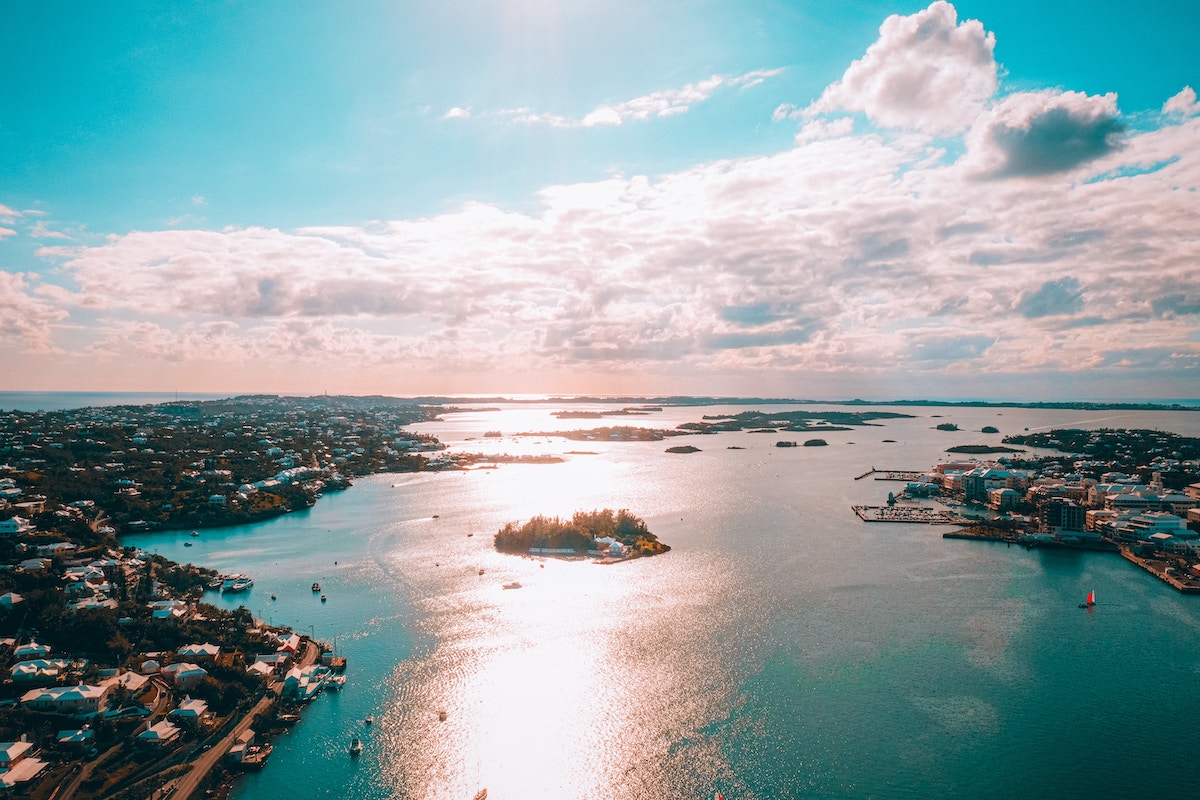By: Nick Callos / Sarah Stone
Skip to...
- What is a Digital Nomad Visa?
- What Countries Offer Digital Nomad Visas?
- Estonia: Digital Nomad Visa
- Germany: Freelance Visa (Freiberufler Visa)
- Czech Republic: Long-Term Business Visa
- Spain: Self-Employment Visa
- Georgia: Digital Nomad Visa
- Mexico: Temporary Resident Visa
- Costa Rica: Digital Nomad Visa
- Barbados: Digital Nomad Visa
- Portugal: Digital Nomad Visa
- Hungary: White Card Digital Nomad Visa
- Bermuda: Digital Nomad Visa
- Antigua and Barbuda: Nomad Digital Residence Visa Programme
- Thailand: 10-Year Digital Nomad Visa
- Malta: Nomad Residence Permit
- Croatia: Temporary Stay Visa
- Taiwan Digital Nomad Visa: Employment Gold Card Visa
- United Arab Emirates (Dubai): Virtual Working Programme
- Iceland: Long-Term Visa for Remote Work
- Mauritius: Premium Travel Visa
- Norway: Independent Contractor Visa
- Anguilla: Digital Nomad Visa
- Seychelles: Workcation Program
- Cabo Verde: Remote Working Program
- Panama: Short Stay Visa for Remote Workers
- Brazil: Digital Nomad Visa VITEM XIV
- The Digital Nomad Visa: Your Path to Living and Working Abroad Successfully
I’ve always loved the visa run. It’s exciting, and allows you to explore another country for a few days. The first time I visited Vietnam was to do a visa run, and I had one of the most memorable weeks of my life in Hanoi.
With that said, visas are constant considerations for digital nomads. Sometimes, time can get tight and you can risk overstaying your visa (which can have bad consequences). And it can be jarring to pick up and move every few months if you’re opting for onward travel.
So, you may be asking yourself: Is there a way to work remotely in a country for a year or longer—without having to exit and re-enter?
As remote work has gotten easier, many hope to pursue their dreams of living abroad. And being able to stay and enjoy one place for a little longer would be convenient. For instance, a continuous year in one of the best digital nomad cities would be awesome, if you could arrange a residency permit.
Well, here’s the good news: the pandemic catalyzed a rise in digital nomad visa schemes, as governments sought to attract travelers to live and work in their country. Now, it appears this digital nomad visa trend will become permanent as more and more places begin implementing long-term visa programs for remote workers (it’s a new normal for global travel!).
So, no longer do you need a traditional work visa or business visa to live and work abroad. International freelancers and remote workers should rejoice!
In this article, we’ll cover what countries offer digital nomad visas, the requirements for these long-term visas, and tips to successfully work from anywhere in the world.
Let’s begin!
What is a Digital Nomad Visa?
A digital nomad visa is a visa for foreign freelancers, self-employed individuals, and owners of location-independent businesses. A digital nomad visa allows remote workers to live and work in another country. While residing in that country, they may work for their own company, their employer, or as a self-employed freelancer or contractor.
Many countries have begun offering digital nomad visas to address the ambiguity remote workers and freelancers abroad face with visas. This simplifies taxes for digital nomads, as they’ll have a country of residency. It also takes away worry surrounding the legality of working remotely while on a travel visa in another country.
What Countries Offer Digital Nomad Visas?
Over the past couple of years, the rise of remote work opportunities coupled with borders opening up again has resulted in a push for countries to offer long-term visas for freelancers and location-independent workers and entrepreneurs. The face of global travel has been changing, with more people taking advantage of opportunities to combine work with vacations, or even pursue new adventures that weren’t available to them before—namely, digital nomad and expat lifestyles.
To encourage more tourism and to make it easier to attract travelers working remotely, it appears more and more governments will continue offering these sorts of visas. The benefits for countries and travelers are too great (it’s a true win-win).
Our list below highlights many of the current countries offering digital nomad visas (or a variation of it). Check back regularly for updates—we’re always adding to the list!
Estonia: Digital Nomad Visa
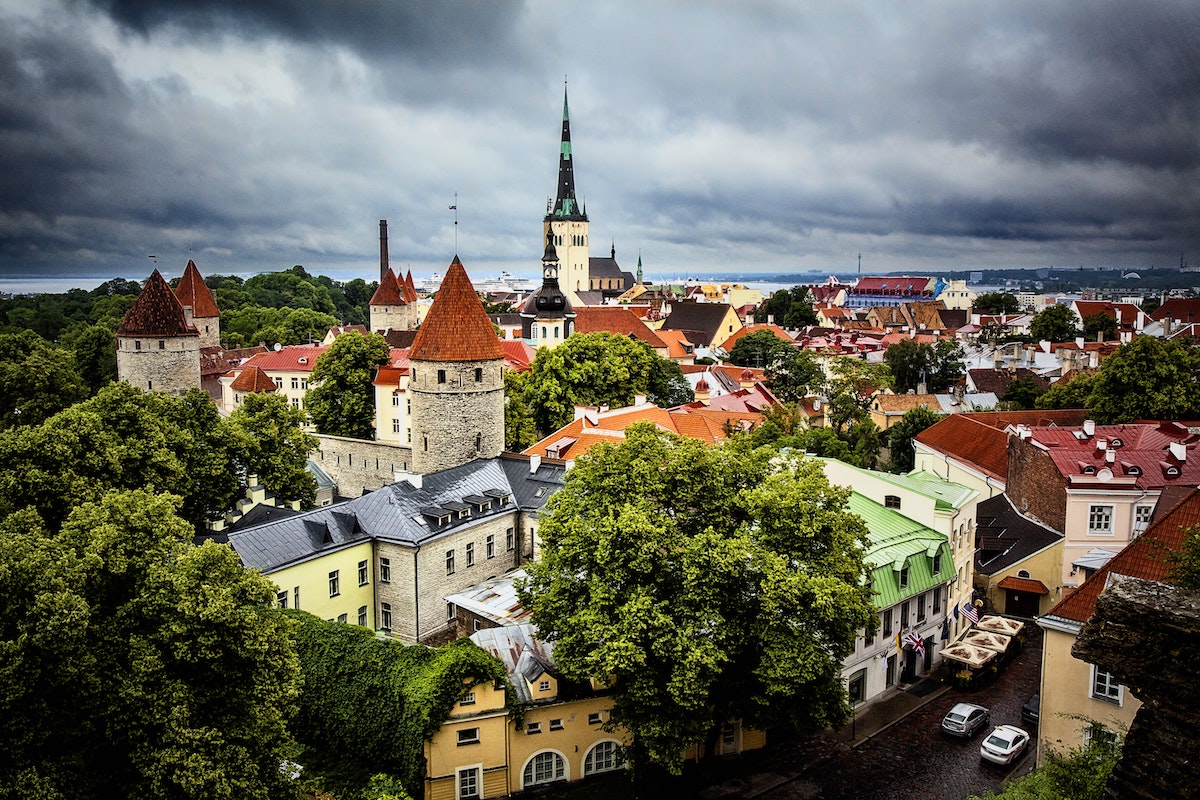
Photo by Leo Roomets on Unsplash
How does a year in Estonia sound? Enjoy expansive countryside and forests, the captivating capital of Tallinn, the Baltic Sea, and more.
To build the country into a true e-state, the government has created the Estonia digital nomad visa. The visa offers working travelers peace of mind, enabling them to work remotely and legally in Estonia for a year (and pay taxes, of course).
Who Can Apply for Estonia’s Digital Nomad Visa?
To get a digital nomad visa to Estonia, you must meet the following requirements:
- You can work independently of location.
- You can use telecommunication tools to work remotely.
- You’re employed with a company outside Estonia, own a business registered abroad, or do freelance work for mostly non-Estonian clients.
Begin your Estonia digital nomad visa application here.
Germany: Freelance Visa (Freiberufler Visa)

Photo by Thanos Pal on Unsplash
Oh, the German Freelance Visa! It’s your ticket to work from anywhere in Germany. From the art and nightlife scenes in Berlin to the gorgeous national parks, you’ll have plenty to do.
Germany’s freelance visa has been around for years, and is highly coveted by digital nomads in Europe. If you qualify, you must pay taxes to the German government.
Who Can Apply for Germany’s Freelance Visa?
To get a freelance visa to Germany, you must:
- Have a liberal freelance profession if you’re a freelancer, such as an artist, language teacher, translator, doctor, architect, or engineer (generally, these positions must have a positive cultural impact).
- Be the founder or sole proprietor of a location-independent company if self-employed, or a managing director or legal representative of a partnership or corporation.
- Do an in-person visit or interview.
- Meet certain financial requirements, such as having a pension plan if you’re over 45.
Note: The Germany freelance visa is initially granted for three months, but you can obtain a residency permit once there and extend your visa for up to three years! Also, Germany’s freelance visa for artists (the artist visa) is only applicable in Berlin.
Begin your Germany freelance visa application here.
Czech Republic: Long-Term Business Visa
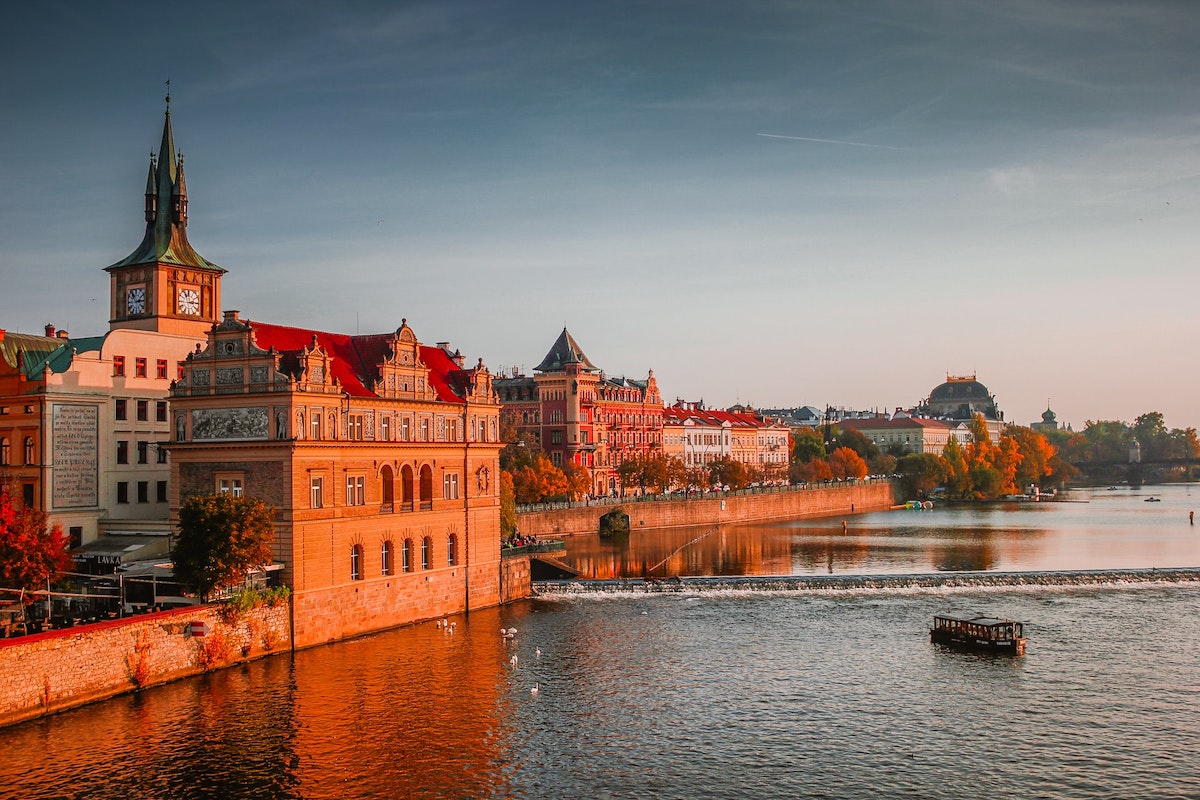
Photo by Rodrigo Ardilha on Unsplash
Spend the year in the Czech Republic, a country known for its beautiful landscape and historic capital city, Prague. Here, folklore and tradition meet modernity, and you’ll love every minute of your stay.
The digital nomad visa for the Czech Republic is actually a one-year business visa. The function is mostly the same. The name and some requirements are just different. But you should qualify nonetheless.
Who Can Apply for the Czech Republic Business Visa?
To qualify for a digital nomad business visa to the Czech Republic, you must:
- Show proof you have sufficient financial resources, including purchasing of health insurance.
- Arrange housing accommodation.
- Present documents showing proof of stay (available for self-employment purposes).
To apply for a long-term visa to the Czech Republic, click here.
Spain: Self-Employment Visa
From the stunning architecture of Barcelona to the buzzing streets of Madrid, Spain delights. The tasty tapas, delicious wine, majestic mountains, and cozy beaches will pull you in, and you’ll never want to leave.
The digital nomad visa is technically called a self-employment visa. It’s essentially the same thing.
Who Can Apply for Spain’s Self-Employment Visa?
Spain’s digital nomad visa offers up to one year of stay and has the following requirements:
- Proof of funds.
- Pass a background check.
- Submit application in person.
- Show purpose of stay (plan of activities).
- Fill out documentation to ensure you pay taxes.
Begin your Spain self-employment visa application here.
Georgia: Digital Nomad Visa

Photo by Tomáš Malík on Unsplash
Georgia has been emerging as a digital nomad hotspot thanks to an affordable cost of living, the gorgeous Caucasus Mountain range, happening beaches, and the wonderful city of Tbilisi. Look no further if you’re looking to live and work abroad for a year in one country.
What’s great is that Georgia’s digital nomad visa isn’t that hard to get. Even Lonely Planet has reported on Georgia’s enticing digital nomad visa scheme. It may just be too good to pass up.
Who Can Apply for Georgia’s Digital Nomad Visa?
To qualify for a one-year digital nomad visa to Georgia, you must:
- Show proof of employment.
- Have travel insurance.
Begin your Georgia digital nomad visa application here.
Mexico: Temporary Resident Visa

Photo by Spencer Watson on Unsplash
With Mexico City, world-class vacation spots, vast jungle, and welcoming people, it’s easy to see why Mexico attracts so many freelancers. The country delivers in every sense of the way, especially when you sit down for a meal.
The digital nomad visa for Mexico is actually a temporary residence permit. The permit allows you to stay for anywhere from 180 days to four years. It’s quite flexible!
Who Can Apply for Mexico’s Temporary Resident Visa?
To qualify for a temporary resident visa to Mexico, you must:
- Have a monthly income of at least $2,595 (or bank account balance exceeding $43,000 over the past year).
Begin your Mexico temporary resident visa application here.
Costa Rica: Digital Nomad Visa

Photo by Fabio Fistarol on Unsplash
Journey into bat-filled caves, wander through pristine rainforests, find your balance on a surfboard or yoga mat, and ascend misty volcanic peaks. Yes, Costa Rica is a place to live a pure life (pura vida). And it’s a place where you can find peace and happiness.
Costa Rica is also great for remote work. You can get reliable WiFi on both the Pacific and Caribbean coasts! That’s why digital nomads should jump for joy when learning about Costa Rica’s long-stay visa program for freelancers and those who work remotely: through this program, you can live and work in the country for one year, with the option to extend for a second year.
Who Can Apply for Costa Rica’s Digital Nomad Visa?
To obtain the Digital Nomad Visa, you must:
- Prove that you work remotely for a company outside of Costa Rica (or that you own a business or are a freelancer working remotely).
- Have stable, consistent income exceeding $3,000 per month for the past year, with continued employment going forward.
- Have proof of health insurance for the duration of your stay.
- Fill out the full application, provide a copy of the photo page of your passport, and pay $100 for processing.
Learn more and start your Costa Rica digital nomad visa application here!
Click here to read our in-depth article about Costa Rica residence and tourist visas.
Barbados: Digital Nomad Visa
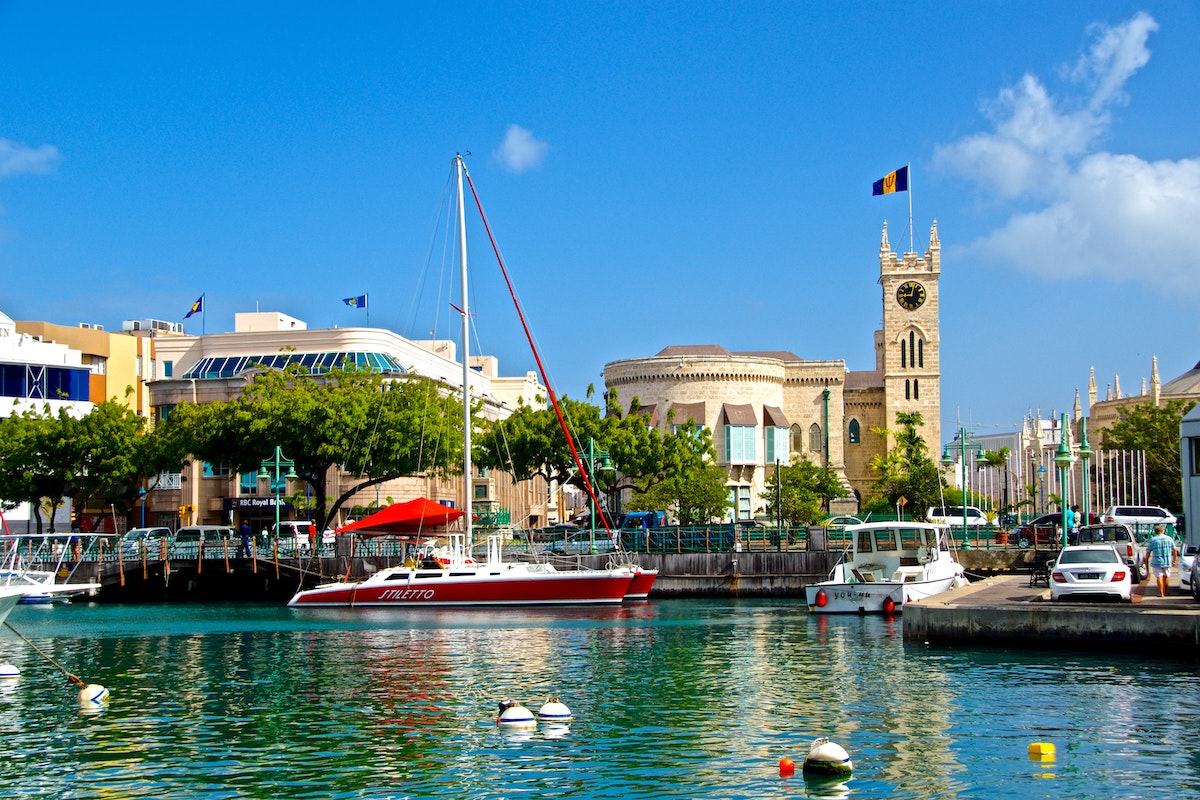
Photo by Kathryn Maingot on Unsplash
When Barbados unveiled their digital nomad visa in June 2020, news about it spread quickly. The 12-Month Barbados Welcome Stamp means the chance to live and work abroad in a tropical paradise.
With budget-friendly beachfront apartments, lots of outdoor activities, and a friendly atmosphere, Barbados makes for the perfect destination to park yourself for a year.
Who Can Apply for Barbados’ Digital Nomad Visa?
To get a digital nomad visa to Barbados, you must:
- Have an annual income of at least $50,000.
- Pay a $2,000 fee ($3,000 for family).
- Earn all income from abroad.
Begin your Barbados digital nomad visa application here.
Portugal: Digital Nomad Visa

Photo by Vita Marija Murenaite on Unsplash
Located on the Iberian Peninsula, Portugal is a fantastic destination for digital nomads: the temperate climate, gorgeous countryside and walkable cities, delicious food and wine, and good infrastructure make it a wonderful temporary home for remote workers.
Portugal has several temporary stay visas, with a new digital nomad visa launched in October 2022. Previously, the D7 Visa for passive income earners was the best option for digital nomads. Through the new visa scheme, you can stay for up to one year as a remote worker (which can be extended for up to five years). You’ll also be charged a 15% tax rate as opposed to 25%, which is standard in Portugal.
Who Can Apply for Portugal’s Digital Nomad Visa?
To qualify for a digital nomad residence visa to Portugal, you must:
- Be a foreign national working remotely and living from your own remote income sourced from outside of Portugal
- Have an income of at least four times’ the country’s minimum wage (about $2,750 per month)—once you arrive in-country, you must open a bank account so that you can pay Portuguese taxes
- Proof of work, health insurance, accommodation for 12 months, background check, and other items
Portugal also offers a Sole Proprietor Visa and an Entrepreneur Visa, which allows you to be self-employed and willing to participate in the Portuguese economy.
Learn more and apply for your Portuguese digital nomad visa!
Hungary: White Card Digital Nomad Visa

Photo by Henrique Ferreira on Unsplash
With unspoiled natural beauty—including relaxing thermal baths and even caves for exploration—and stunning culture in the cities, plus an affordable cost of living, Hungary is a fantastic place for digital nomads to live and work.
Hungary’s long-stay digital nomad visa—called the White Card—allows you to stay for one year, and can be extended for an additional year.
Who Can Apply for Hungary’s Digital Nomad Visa?
To qualify for Hungarian digital nomad residency, you must:
- Not be a Hungarian, EU or Schengen Area citizen.
- Be employed in a country other than Hungary, or have an ownership share with verified profit in a company based in a country outside of Hungary; you also must be working remotely in either of these situations.
- Have a minimum monthly income of €2,000, and prove that you’ve received this amount for the past six months before your time of entry.
- Fill out the application and pay the service fee.
Learn more about the Hungary White Card Digital Nomad Visa here!
Bermuda: Digital Nomad Visa
Would you like to work remotely from Bermuda? With pink-sand beaches, underground caves, maritime history, and a blend of cultures, Bermuda is a fascinating destination.
Bermuda launched their digital nomad visa in 2020 to much publicity. After all, who isn’t looking to lay low on a beautiful island?
Who Can Apply for Bermuda’s Digital Nomad Visa?
To qualify for a digital nomad visa to Bermuda, you must:
- Have valid health insurance.
- Demonstrate you have consistent income.
- Demonstrate employment in a remote capacity (self-employment, work for an employer, etc).
To begin your digital nomad visa application for Bermuda, head to the government website.
Antigua and Barbuda: Nomad Digital Residence Visa Programme
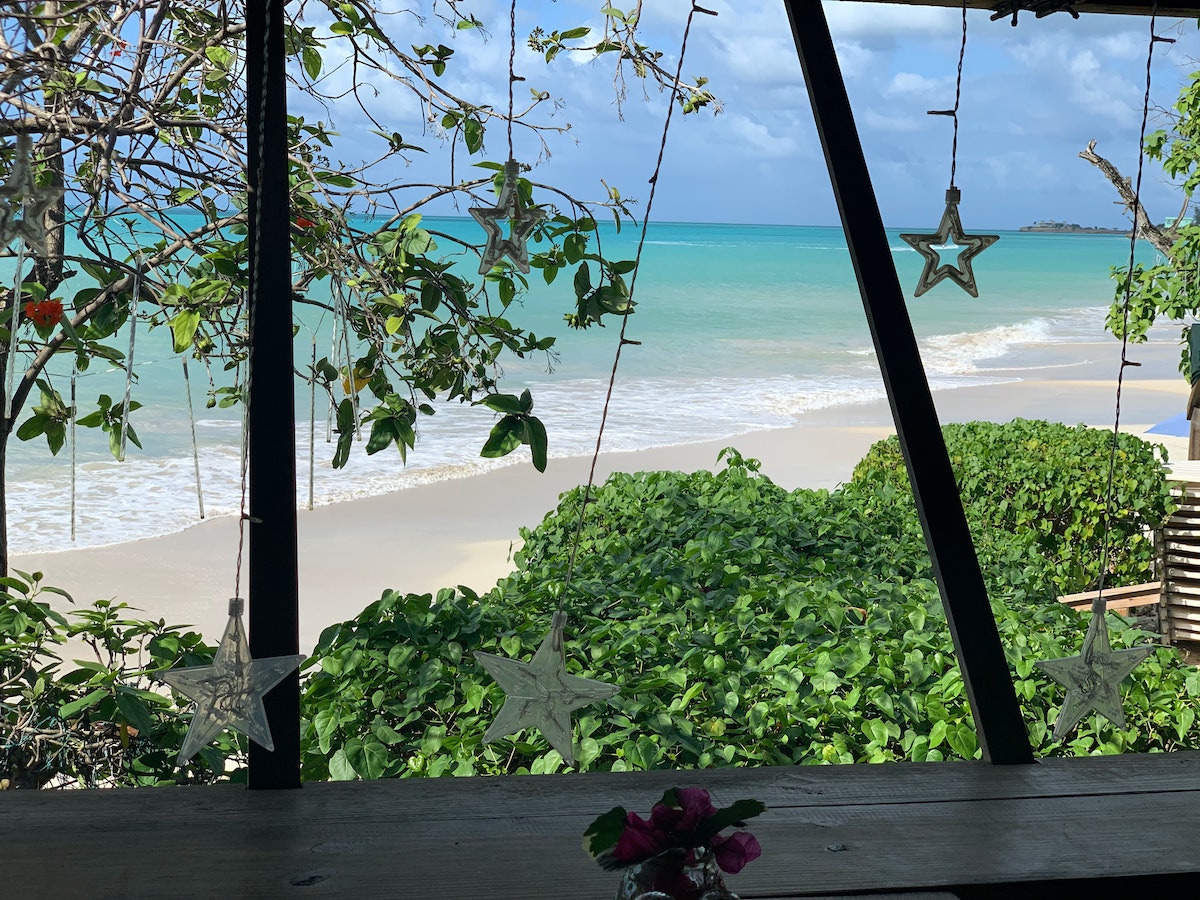
Photo by Lawrence Eaton on Unsplash
Surrounded by enamel-blue waters, Antigua and Barbuda features a distinct English accent while being quintessentially Caribbean. With a mellow atmosphere, candy-colored villages, breathtaking nature, and sound infrastructure, Antigua and Barbuda is a digital nomad’s dream.
Recently, Antigua and Barbuda announced their nomad digital residence program, a long-stay visa for those who work remotely. If eligible, you’ll be granted special-resident authorization that’s valid for up to two years!
Who Can Apply for Antigua and Barbuda’s Digital Nomad Visa?
To qualify for a digital nomad visa to Antigua and Barbuda, you must:
- Provide evidence of employment (work with an employer, self-employment, etc).
- Have medical coverage for the duration of your stay.
- Pay non-refundable long-stay visa fees for a single applicant ($1,500), couple ($2,000), or family of three and over ($3,000).
- Give proof of expected income of no less than $50,000 USD per year during your stay, as well as demonstrate that you have the means to support yourself.
To begin your digital nomad visa application for Antigua and Barbuda, click here.
Thailand: 10-Year Digital Nomad Visa
Friendly, historic, naturally beautiful, and full of culture and great cuisine, Thailand has it all. Whether you’re roaming around the streets of Bangkok or relaxing on the beaches of Phuket, this country brings you into the present, and calls you to enjoy the moment.
Thailand has recently launched a 10-year digital nomad visa aimed at attracting highly-skilled foreigners who want to work remotely and live in the country.
Who Can Apply for Thailand’s Digital Nomad Visa?
To qualify for Thailand’s digital nomad visa, you must:
- Have an annual income of at least $80,000 for the past two years.
- Have at least five years’ experience in your field.
- Be employed with a company that has a combined revenue of at least $150 million within the past three years.
Note: Thailand also has a privilege visa for a long stay called the Elite Easy Access. For a one-time fee of 500,000 THB (~$16,000 USD), you get a multi-entry five-year visa that can be renewed.
Learn more about Thailand’s different visas for travelers here.
Click here to read our in-depth article about Thailand residence and tourist visas.
Malta: Nomad Residence Permit

Photo by Mike Nahlii on Unsplash
A dream destination in the Mediterranean, Malta is home to ruins and incredible history, gorgeous beaches, a sunny and bright climate, and super fun parties and festivals. This small island nation has something for everyone, and being more affordable than popular mainland European destinations, Malta is very attractive for digital nomads.
The Malta Nomad Residence Permit lasts for one year, and can be renewed for a maximum stay of three years.
Who Can Apply for Malta’s Nomad Residence Permit?
To qualify for a nomad residence permit to Malta, you must:
- Work remotely for an employer abroad, or conduct business activities in a company registered abroad, or be a freelancer or consultant to clients based abroad
- Have a valid travel document
- Have health insurance
- Have property rental or purchase agreement
- Pass a background check
Learn more and apply for your Malta Nomad Residence Permit!
Croatia: Temporary Stay Visa

Photo by Spencer Davis on Unsplash
Fancy an extended stay in the Mediterranean? Then consider Croatia, a country with an island-speckled coastline, rich cultural legacy, and captivating countryside. From ancient walled towns to family-run taverns, Croatia charms like no other.
In early 2021, Croatia began offering temporary stays to digital nomads. Croatia’s temporary stay is granted for up to 12 months.
Who Can Apply for Croatia’s Digital Nomad Visa?
To get approved for the one-year temporary stay visa to Croatia, you must:
- Provide proof of employment (remote work with employer, self-employment, etc).
- Show proof you haven’t been convicted of criminal offenses (get a background check in your home country).
- Show proof of accommodation, such as a rental agreement.
- Prove you can support yourself (pay stubs, bank statements, etc). Approval requires savings or income of at least ~$32,800 USD per year.
- Provide proof of travel/health insurance for the duration of your stay.
- Pay the application fees
Begin your Croatia digital nomad visa application here.
Taiwan Digital Nomad Visa: Employment Gold Card Visa
Sleek, modern, and well connected, Taiwan has so much to offer for digital nomads who want to live in a bustling, urban landscape with access to beaches, parks, and much more. With an incredibly affordable cost of living compared to the US, Taiwan is undoubtedly attractive for nomads who want to experience the city life, have a fantastic internet connection, and make their money stretch further than at home.
Taiwan’s Gold Card Visa lets you stay from one to three years, and can work for yourself or for a foreign country. And once you’ve lived in Taiwan for five years, you can apply for permanent residency or citizenship.
Who Can Apply for Taiwan’s Gold Card Visa?
To qualify for a digital nomad residence visa to Taiwan, you must:
- Work in a specific area, including science and technology, economics, education, culture or arts, sports, finance, law, or architecture
- Have a monthly salary of 160,000 TWD (regardless of your employment)
Learn more and apply for your Taiwan Gold Card visa!
United Arab Emirates (Dubai): Virtual Working Programme
With profound traditions, a futuristic skyline, and endless entertainment, Dubai is a desert oasis mega-city. Plus, it’s by the beach. Dubai has all the ingredients to be a digital nomad favorite.
Through Dubai’s Virtual Working Programme, you can live and work for one year in one of the world’s most exciting cities.
Who Can Apply for Dubai’s Digital Nomad Visa?
The United Arab Emirates (UAE) has the following requirements for Dubai’s Virtual Working Programme:
- Provide proof of employment with a 1+ year contract; if you run your own company, you must provide proof of ownership.
- Have at least $5,000 USD in monthly income (must show bank statements from the last 3 months).
- Have health insurance that’s valid in the UAE.
- Pay the fees plus medical insurance premiums.
To begin your Dubai digital nomad visa application, click here.
Iceland: Long-Term Visa for Remote Work

Photo by Nicolas J Leclercq on Unsplash
With cinematic landscapes, clean air, amazing skiing spots, and phenomenal hot springs, it’s easy to see why Iceland tops bucket lists. You can also have a ton of fun in Reykjavik, Iceland’s welcoming capital city.
Iceland recently came out with good news for those interested in long-term travel: a remote work visa.
Who Can Apply for Iceland’s Remote Work Visa?
You must meet the following requirements to get a remote work visa to Iceland for six months:
- Work remotely for a foreign company, own a location-independent business, or be self-employed.
- Have a monthly income of 1,000,000 ISK, or 1,300,000 ISK for couples.
- Have health/travel insurance for the duration of your stay.
- Pay the processing fee.
To begin your Iceland remote work visa application, click here.
Mauritius: Premium Travel Visa

Photo by Rumman Amin on Unsplash
An Indian Ocean island nation, Mauritius not only boasts some of the best beaches and nature in Africa, but also has incredible cuisine, diverse cultures, and lots of history. The country is a gem of East Africa.
If you’d like to spend a year in a tropical paradise, look no further. Mauritius’ One-Year Premium Travel Visa gives you that chance (with no fees and the option to renew!).
Who Can Apply for Mauritius’ Premium Travel Visa?
You must meet the following requirements:
- Get income from outside the country (location-independent business, self-employment, remote work, etc).
- Show the purpose of your visit, proof of accommodation, and other itinerary info.
- Not enter the local job market.
- Meet other basic immigration requirements.
Begin the application here.
Norway: Independent Contractor Visa

Photo by Ignacio Ceballos on Unsplash
With stirring landscapes, vibrant cultural life, and high quality of life, Norway is simply one of the best places on earth. For outdoor enthusiasts, there’s so much to do too, from whitewater rafting and cycling in the summer to snowsports and watching the Northern Lights in the winter.
Norway recently unveiled the Independent Contractor Visa, which enables you to stay in the Scandinavian country for up to 2 years.
Who Can Apply for Norway’s Independent Contractor Visa?
Norway’s digital nomad visa has location-specific requirements when it comes to work. Make sure you qualify before applying. These are the requirements:
- Prove you’re self-employed with an established business abroad.
- Have a contract with a Norwegian client to work on a project.
- Show a gross annual income of €35,719.
- Prove you’re qualified to work in your profession (show your CV, degrees, etc)
- Prove you have accommodation in Norway.
- Bring the application to the nearest Norwegian embassy and pay the fee.
Click here to begin the application.
Anguilla: Digital Nomad Visa
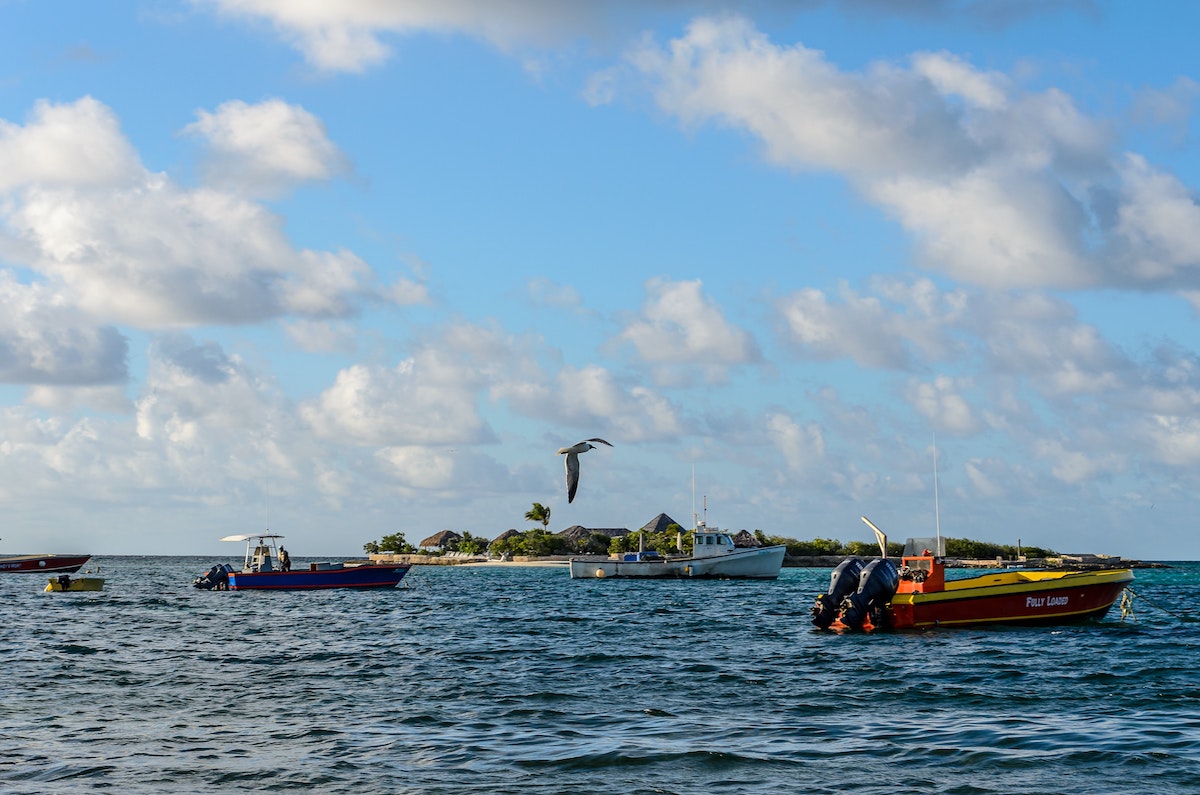
Photo by Steve Adams on Unsplash
Want to work from paradise? Then consider a journey to Anguilla, a Caribbean nation and UK territory with pristine beaches, great nightlife, and plenty of nature activities. Here, you can find the perfect balance between work and play.
Anguilla is now offering digital nomads the chance to work from there through a visa scheme. The stay period is from 91 days to 12 months.
Who Can Apply for Anguilla’s Digital Nomad Visa?
To qualify, you must:
- Provide proof of employment or show you own a business.
- Show police records (get a background check).
- Pay the visa fee.
To apply for Anguilla’s digital nomad visa, click here.
Seychelles: Workcation Program

Photo by Alessandro Russo on Unsplash
Home to some of the world’s most gorgeous beaches, the Seychelles is a perfect, tropical destination for digital nomads who want to be surrounded by natural beauty, welcoming people, and tons of outdoor activities. This country comprised of 115 islands off the east coast of Africa has recently opened a Workcation Program for travelers who’d like to live there for one year while working remotely.
Who Can Apply for the Seychelles’ Digital Nomad Visa?
To qualify, you must:
- Have a valid passport for at least six months prior to your visa application
- Show proof of employment or business ownership, with a description of the business
- Provide proof of income that can sufficiently cover your stay in the Seychelles
- Purchase medical and travel insurance
- Purchase an onward ticket for the end of your stay
- Show provisional proof of accommodation in-country
To apply for the Seychelles’ Workcation Visitor Permit, click here.
Cabo Verde: Remote Working Program

The amazing archipelago country of Cabo Verde is known for its beautiful beaches, mountains, and forests, with a fantastic sunny climate and tons of outdoor activities for travelers looking for a bit of adventure in a paradise.
The digital nomad visa scheme here—called the Remote Working Program—gives you a six-month visa with the option to renew, and is open to travelers who work remotely or are self-employed and work online. It also provides the opportunity to bring your family with you.
Who Can Apply for Cabo Verde’s Digital Nomad Visa?
To qualify, you must:
- Satisfy citizenship requirements—the visa is open to travelers from North America, Europe, the CPLP, and the CEDAEO
- Have a valid passport
- Prove that you have remote work income, whether it be through employment with a company that allows you to work remotely, or through freelancing or self-employment
- Show that you have enough income to live in Cabo Verde, with an average of at least €1,500 in your bank account for the past six months
- Have health insurance covering the duration of your stay
- Show that you have housing for the duration of your stay
- Fill out the application form, complete a criminal background check, and pay the application fee
To apply for the Cabo Verde Remote Working Program, click here.
Panama: Short Stay Visa for Remote Workers
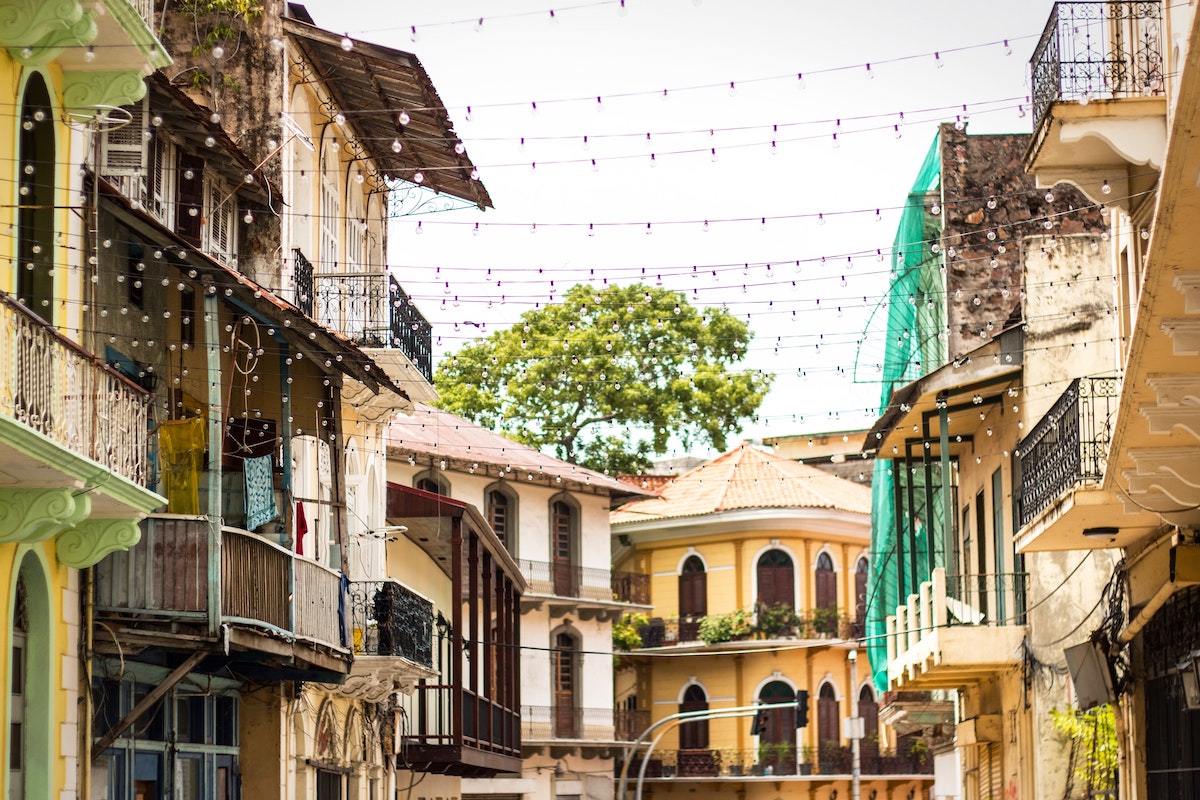
Photo by Kaja Reichardt on Unsplash
Another beachy stay for digital nomads—with lots of expat communities dotted throughout—Panama is a super popular destination for remote workers who want to settle for a little while in a new location. Whether you want to stay in Panama City for a more urban feel, or spend your time in the beach towns of Bocas del Toro or Playa Venao, there’s something for everyone here.
Panama’s digital nomad visa allows you to live and work remotely in Panama from nine to 18 months. You don’t have to pay taxes in Panama for work done outside of the country, and if you stay longer than six months, you can even apply for tax residency (meaning you wouldn’t need to pay taxes in your home country).
Who Can Apply for Panama’s Digital Nomad Visa?
To qualify, you must:
- Be a remote worker for a foreign company, or be a freelancer doing remote work for businesses outside of Panama
- Prove that your minimum annual income from remote work is $36,000
- Have medical insurance to cover your time in Panama, plus a certification that you’re in good health at the time of application
- Submit the application and related materials, including proof of a clean criminal record plus an affidavit of non-acceptance for jobs within Panama
- Pay the $250 application fee, plus $50 for your visa
To learn more about the Panama Digital Nomad Visa, click here.
Brazil: Digital Nomad Visa VITEM XIV

Image by David Mark from Pixabay
Introduced in early 2022, Brazil’s digital nomad visa invites remote workers to stay in the country for one year (with the possibility to extend for an additional year). Consistently ranked on of the world’s most beautiful countries, Brazil has stunning beaches and incredible food, tons of nightlife, outdoor activities, and cultural events for travelers of every interest possible, and a very affordable cost of living for expats.
With the digital nomad visa, you can take advantage of Brazil’s free public healthcare, and for your first six months of living in Brazil, you don’t need to pay Brazilian taxes on your foreign income.
Who Can Apply for Brazil’s Digital Nomad Visa?
To qualify, you must:
- Be a remote worker for a foreign company, or be a freelancer doing remote work for businesses outside of Brazil
- Prove that you can meet the minimum monthly income of $1,500, or have a bank account balance of at least $18,000 at the time of your application
- Submit the application and accompanying materials, such as passport and birth certificate, payment of consulate fees, clean criminal record, and other documents
To learn more about the Brazil Digital Nomad Visa, click here.
Want to retire early and travel the world? Then embrace the art of geoarbitrage! In this guide, we’ll teach you all you need to know about geographic arbitrage. By the time you finish reading, you’ll be prepared to live in your dream destination while working and saving money.
Read the Guide
The Digital Nomad Visa: Your Path to Living and Working Abroad Successfully
From the Costa Rica Rentista Visa to the Malaysia My Second Home program, countries have long had visa schemes to enable foreign nationals to live in the country for a long period of time. Given the rise of the digital nomad lifestyle, more countries have begun to offer visas for freelancers, self-employed individuals, sole proprietors, and business owners.
We hope this list will grow over time. Check regularly for updates. And get started on your digital nomad visa application to one of the countries above today!
About the Authors
Nick Callos: Nick has always had a passion for reading, writing, and discovering the new and unknown. Originally from Cincinnati, Ohio, Nick holds a Bachelor’s Degree in English from Boston College. He currently splits his time between his hometown, Chengdu, China, and the open road. A full-time travel writer, Nick hopes his work can inspire others to explore the world more deeply and enjoy the digital nomad lifestyle.
Sarah Stone: As the editor-in-chief of Frayed Passport, my goal is to help you build a lifestyle that lets you travel the world whenever you want and however long you want, and not worry about where your next paycheck will come from. I’ve been to 20+ countries and five continents, lived for years as a full-time digital nomad, and have worked completely remotely since 2013. If you would like to share your story with our community, or partner with Frayed Passport, get in touch with me at sarah@frayedpassport.com!
Featured image via Unsplash.

